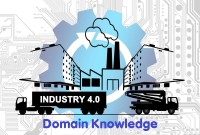- Home
- Business Processes
- Industry Knowledge
- Aerospace Industry
- Automotive Industry
- Banking Domain
- BFSI Industry
- Consumer/ FMCG Industry
- Chemicals Industry
- Engineering & Construction
- Energy Industry
- Education Domain
- Finance Domain
- Hospitality Domain
- Healthcare Industry
- Insurance Domain
- Retail Industry
- Travel and Tourism Domain
- Telecom Industry
- Leadership Skills
- eLearning
- Home
- Leadership
- Time Management
- Know Yourself & Your Values
Know Yourself & Your Values
At different points in your professional career, it is helpful to identify your core values. Values are the qualities considered to be the most important guiding principles that determine the priorities in your life and greatly influence your career choices. Your career brings happiness when it is in agreement with the beliefs you have about what is important and meaningful to you. Awareness of your values will help you develop a clearer sense of what's most important to you in life.
Your beliefs become your thoughts, Your thoughts become your words,
Your words become your actions, Your actions become your habits,
Your habits become your values, Your values become your destiny
- Mahatma Gandhi
What are Values?
The dictionary definition of Values is “The important and lasting beliefs or ideals shared by the members of a culture about what is good or bad and desirable or undesirable.” Rockeach (1973) defines values as "a specific mode of conduct or end-state of existence is personally or socially preferable to an opposite or converse mode of conduct or end-state of existence."
Importance of Values for Individuals:
Values provide a framework for making choices between desirable and undesirable responses. Values are derived from the basic assumptions held by a group of people about themselves, others, and the world. Values also refer to priorities that an individual assigns to a multiplicity of goals. It thus provides direction to individuals and determines the intensity of individual responses. The stronger the value system more intense will be the action in pursuit of that value. Values have a major influence on a person's behavior and attitude and serve as broad guidelines in all situations. Some common business values are fairness, innovation, and community involvement.
Your values are the things that you believe are important in the way you live and work. They determine your priorities, and, they're probably the measures you use to tell if your career is shaping and progressing the way you want it to be. When the things that you do and the goals that you chase match your values, you feel accomplished, satisfied, and content. But when your actions don't align with your values, you feel unhappiness. Values thus affect all our decisions and actions and have a self-prophetic impact on our being.
Values in Organizational Context:
In order for organizations to achieve unity of action amongst diverse employees, it is imperative for them to articulate core values and seek adherence to those values by individuals. The core values of an organization are derived from the vision and expectations of strategic stakeholders.
In the global economic order, sustenance and growth of organizations depend on becoming active agents in transforming the environment to make it conducive to give expression to their ideas and intentions. This leads to the need for developing organizational vision and articulating a set of values providing focus to their responses to the demands of internal and external stakeholders. Values provide a framework enabling individuals to prioritize their actions, make a choice of options, determine preferred ways of responding, and distinguishing between desirable and undesirable responses. Given its significance, it is obvious that unity of action amongst employees towards the common purposes of the organization cannot be achieved unless they adhere to a common set of values.
In the pre-liberalization era, the value system in organizations grew primarily out of the societal value system making the organization microcosms of the larger society. In the current and emergent scenario, organizations need to make deliberate choices with regard to developing value systems which would enable them to gain and maintain a competitive edge. Most organizations, therefore, articulate core values such as quality, customer satisfaction, environmental protection, employee development, human dignity and respect, integrity, technological development, social responsibility, etc. and make them an integral part of their day to day functioning.
How does Value System operate?
Personal Values provide an internal reference for what is good, beneficial, important, useful, beautiful, desirable, constructive, etc. Values generate behavior and help solve common human problems for survival by comparative rankings of value, the results of which provide answers to questions of why people do what they do and in what order they choose to do them. Values operate at least at three levels: individual, socio-cultural and organizational levels. Individuals belonging to the same socio-cultural environment may differ in terms of their value system. At the individual level, value tends to differ in, terms of their importance and intensity. Every individual, therefore, develops a hierarchy of values. Socio-cultural value systems are derived from the basic belief about the nature of society and its relationship with the environment. It has its historical roots in the cultural traditions of the society and in its triumphs and trials. Likewise, organizations, develop their own value system arising primarily cut of compulsions to survive as a viable entity.
Adherence to Organizational Values:
Most organizations articulate certain core values that must be adhered to by the employees. The success of adherence to these values relies on the effort, dedication, and adherence of these values by its employees in their daily operations, the way they treat their colleagues, deal with strategic/external partners, and how they deliver results. Employees must learn to accept these values and start believing in them and follow them in their day to day actions. When values are shared by all members of an organization, they are extraordinarily important tools for making judgments, assessing probable outcomes of contemplated actions, and choosing among alternatives.
Establishing moral principles means determining the core values which should guide the organization, however, an organization may publish one set of values, perhaps in an effort to push forward a positive image for the outside world, but the values that really guide organizational behavior in practice may be very different. When there is a disconnect between stated and operating values, it may be very difficult for employees to determine what is "acceptable."
Value Actualization:
Core values developed by the organization must be internalized by organization members so as to bridge the gap between the value system of the individuals and the collectivity. However, what if members of the organization do not share and have not internalized the organization's values? Obviously, there will exist a disconnect between individual and organizational values and the value system will be dysfunctional. In the absence of conscious effort to develop a shared value system, the employees will continue to adhere to their archaic value system derived from the old assumptions, or by the predominant value system prevalent in their social-cultural environment. In either case, the organization will not be able to optimally channelize the energies and efforts of its members towards purposive action. It is advisable therefore within the overall framework of the corporate value system, every department, every function, and identifiable product or service group must develop operational values relevant to the demands of their task and their respective contexts.
Explore the Checklist on Values and gain a better understanding of yourself!
Related Links
You May Also Like
-
What are some of the smartest things you can do in your early career that can help you become successful? The more you challenge yourself early on and gain a multitude of experiences and skills, the more successful you'll become down the road. In this article, we have compiled our best career advice including tips from career and recruitment experts. Here are some important tips to keep in mind as you plan your education and training, your career, and your life.
-
Tools for Developing Your Team
If a manager has too many weak spots in the talent of the team, the ability to empower the team members to independently execute the project is impaired. Assignments fall behind schedule or stretch out because the needed skills or knowledge are not in place when needed. To successfully execute important projects, hiring talented people, and increasing the talents of existing staff are most important.
-
Building Your Domain Knowledge
Domain knowledge from a career management perspective encompasses the understanding of industry dynamics and business processes of the target operational area. Domain expert exhibits clear knowledge in the respective industry and understands the industry concepts in general. It is always recommended to best highlight your exposure of domain in your resume or cover letter. TechnoFunc provides you with the best tutorials to gain domain knowledge in a large number of industries and business areas.
-
Guide to Technical Leadership Skills
Technical leaders care about building amazing products and the best technical capabilities in their teams. Everything they do is focused on improving the user experience and bringing competitive advantage for their organization. Learn the skills and competencies you need to build a technical career path for yourself that starts with building technical expertise and grows into developing technical leadership.
-
Robert Katz identified three leadership skills called - technical skills, human skills, and conceptual skills as the basic personal skills essential for leadership. Leaders must possess these three skills that assist them in optimizing a leader's performance. Technical skills are related to the field, human skills are related to communicating with people and conceptual skills related to setting the vision.
-
Narrative leadership is interpreted as the leader who aspires to construct leadership by telling stories. Leadership is a task of persuasion, of winning people’s minds and hearts. Storytelling is thus inherently suited for the task of leadership. Learn about the narrative leadership style and how to use this style to inspire and motivate followers or to manage change.
-
Discover Your Career Direction
The process of finding career direction begins with specific career exploration and identification of a career that could be passionate about, a career that allows you to make the optimum use of your talents. After identification of the career, you need to acquire skills and tools, and education that can help you get entry into your dream career. Learn the important tips that you cannot afford to miss.
-
Navigating your career journey will hopefully include a series of experiences that challenge your skills and abilities in ways that are satisfying and rewarding. Only you can manage your career. That means you must determine what things you are passionate about, what your goals are, both professionally and personally, and how much energy you are willing to invest along the way. Learn how to build an effective career path framework for yourself.
-
Improving Skills & Competencies
Whenever you are looking for a job or having your yearend discussion with your manager, two terms generally referred to be “Skills” and “competencies”. Today success in a career is an outcome of having essential competencies and building required skills. Skills could be a major distinguishing factor for you to move up on the career ladder and jump from one role to another. Leadership skills when combined with relevant domain and functional expertise can transform your entire career growth and help you have a fulfilling career.
-
Functional skills are the core competencies that can be transferred to different work areas like understanding of finance is independent and a finance expert can comfortably adapt to a manufacturing or service industry. Functional skills are obtained by understanding the various processes and the principles applicable to a business function. Functional experts are in great demand as they are specialists and required to manage the business processes like human resources, operations, or finance.
Explore Our Free Training Articles or
Sign Up to Start With Our eLearning Courses

About Us
Learning
© 2023 TechnoFunc, All Rights Reserved









